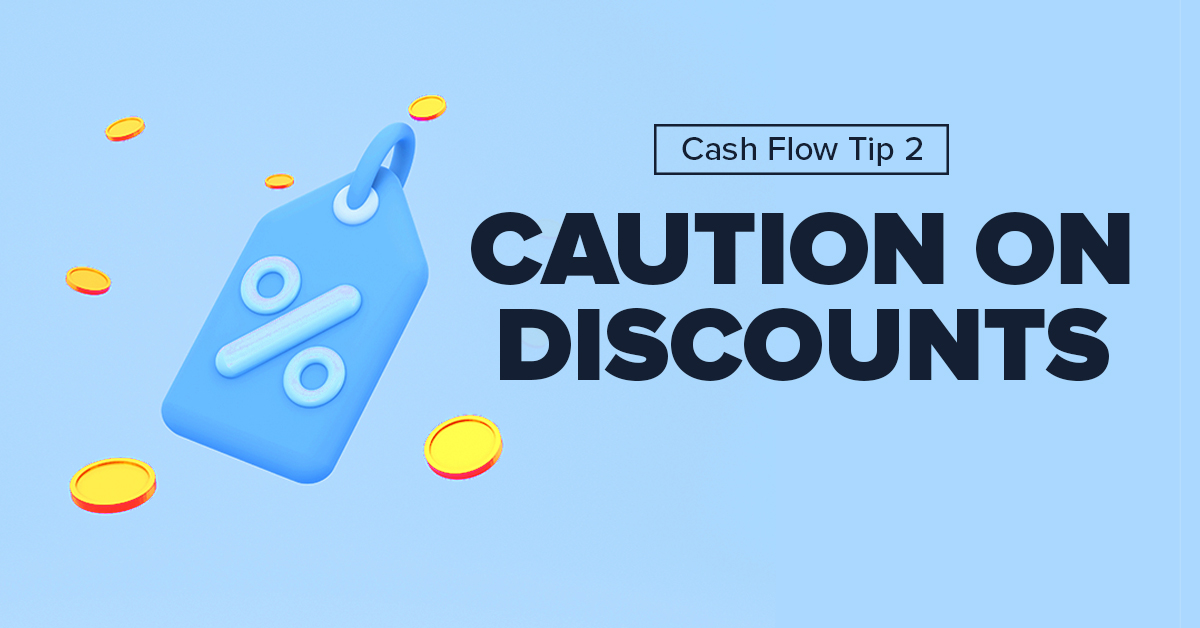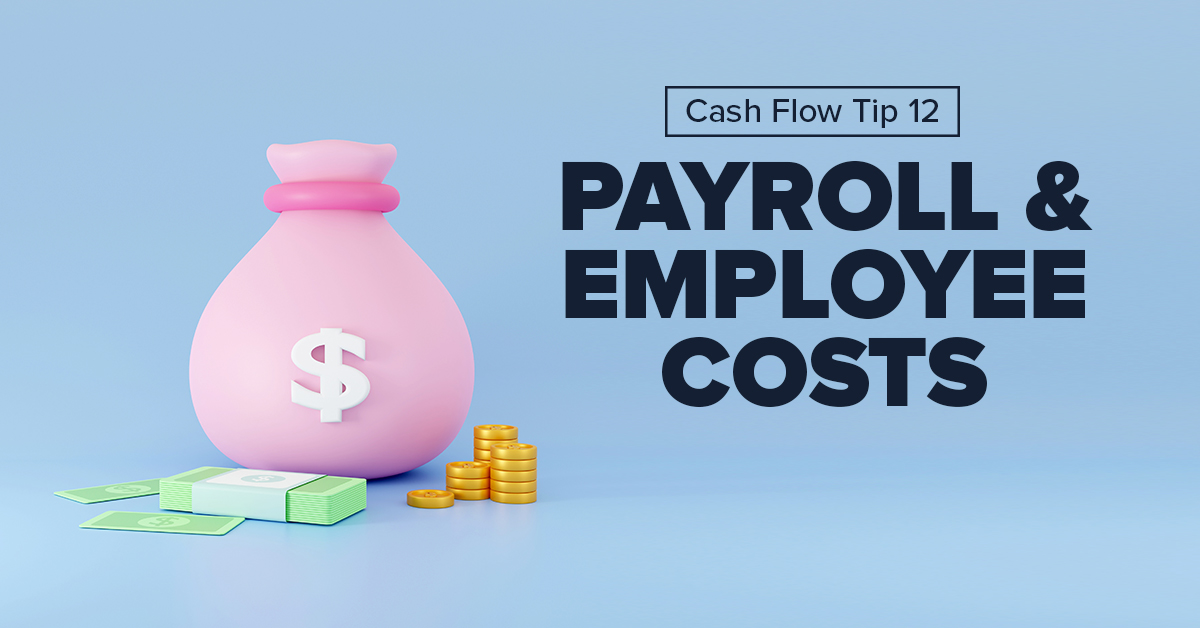Cash Flow Series
Cash is king! Having cash readily available is essential for a business’s success as it provides the liquidity needed to meet short-term obligations and respond to unexpected events.
Join Registered Tax Agent, CPA, and Public Accountant Sheree Cusack as she brings you tips to generate positive cash flow in your small business.
Cash Flow Tip 2
Caution On Discounts

Do you know the impact that offering a discount on your product is having on your bottom line? Do you even know what your bottom line is? This tip takes a look at exercising caution when using a discount sales strategy in your business. There’s no point making lots of sales if there is no profit in them!
Cash Flow Tip 4
Number Of Sales

Sales are key to maintaining healthy cash flow for businesses. Without sales, a business wouldn’t have the funds to pay for expenses or invest in growth. Insufficient sales can lead to negative cash flow, causing financial struggles or even failure. By focusing on increasing sales, businesses can ensure long-term financial stability.
Watch the video to learn about ways to increase sales without sacrificing quality and business improvement.
Cash Flow Tip 5
Gross Profit Margin

Are you focused on cash as much as profit? The key to running a business is to have more cash today than you did yesterday. If that’s not happening we need to find a way to get your cash flow back on track. The gross profit margin represents the percentage of revenue that a company retains after deducting the cost of goods sold. This means that a higher gross profit margin indicates that a company is able to generate more revenue per dollar of sales, which in turn can result in higher cash inflows.
Subscribe to our monthly
LIVE LIFE newsletter.
Our monthly newsletter gives you insights in achieving financial freedom that supports the lifestyle of your dreams!
Cash Flow Tip 6
Operating Costs

Operating costs are a key factor in managing and improving cash flow, as they directly impact a company’s profitability and ability to generate cash.
To improve cash flow, a business must either increase its revenue or reduce its operating costs. By reducing expenses, a company can free up cash that can be used for other purposes, such as investing in growth or paying down debt, and may be able to offer its products or services at a more competitive price.
Cash Flow Tip 7
Accounts Receivable

Accounts receivable and invoicing are essential components of cash flow management, as they determine how quickly a business is able to collect payment from its customers.
If a business does not have a clear and efficient invoicing system in place, customers may be slow to pay or dispute the amount owed, which can delay payment and create cash flow problems. Businesses must establish clear payment terms and follow up with customers in a timely and professional manner to improve their cash flow and increase their chances of long-term success.
Cash Flow Tip 8
Cash Collection

Cash collections are essential for managing and improving cash flow, as they represent the actual cash that a business receives from its customers.
They impact a company’s liquidity, ability to meet financial obligations, and ability to invest in growth or pay down debt. To manage cash collections effectively, businesses must establish clear payment terms, communicate them clearly to customers, and follow up promptly on overdue payments. This can help to improve profitability and overall financial health.
Cash Flow Tip 9
Inventory or Stock On Hand

Inventory or stock on hand is an important factor in managing and improving cash flow because it represents the amount of cash that a business has tied up in its products or goods.
Find out how to optimise inventory so your businesses can free up cash that can be used for other purposes, while also ensuring that they have the right amount of stock on hand to meet customer demand.
Cash Flow Tip 10
Work In Progress

Work in Progress (WIP) is important for managing cash flow as it represents the costs assigned to an unfinished project. If a business carries too much WIP, it can tie up valuable cash, while too little WIP can lead to lost sales.
Effective WIP management is crucial as it determines cash availability for investing in growth or paying bills. Additionally, managing WIP can help reduce costs associated with carrying it.
Cash Flow Tip 11
Accounts Payable

Accounts payable plays a fundamental role in managing a business’s cash flow by representing the amount owed to suppliers. By effectively handling accounts payable, businesses can enhance their cash flow by controlling payment schedules and minimising processing expenses. Moreover, it can assist in preventing any harm to the supplier relationships.
Cash Flow Tip 12
Payroll and Employee Costs

Payroll and employee costs are crucial to cash flow in small businesses due to their significant impact on overall expenses. Employees are essential to small businesses as they provide necessary labor, expertise, and support, allowing the business to operate and grow.
It is important to remember that your employees are human, and it is important l to be compassionate and conduct employment matters in a legal way. It is your responsibility as an employer and should be managed properly.
Cash Flow Tip 13
Debt

Debts can significantly impact the cash flow of small businesses by requiring regular payments and potentially accruing interest over time. When a business takes on debt, a portion of their cash flow is committed to making regular payments, reducing the amount available for operations, investments, and growth.
Late or missed payments can lead to penalties, further straining cash flow. Moreover, high-interest rates on debt can lead to significant long-term costs that can harm profitability. Proper debt management through responsible borrowing, negotiating favourable terms, and prioritising debt repayment can help businesses reduce the negative impact of debt on their cash flow and overall financial health.
Cash Flow Tip 14
Alternative Financing and Funding

Alternative financing and funding can positively impact the cash flow of small businesses by providing other sources of capital to support operations and growth. Unlike traditional bank loans, alternative funding options, such as invoice factoring, merchant cash advances, and crowdfunding, can be more accessible and flexible, allowing businesses to obtain funds quickly and without the rigorous requirements of traditional lending.



